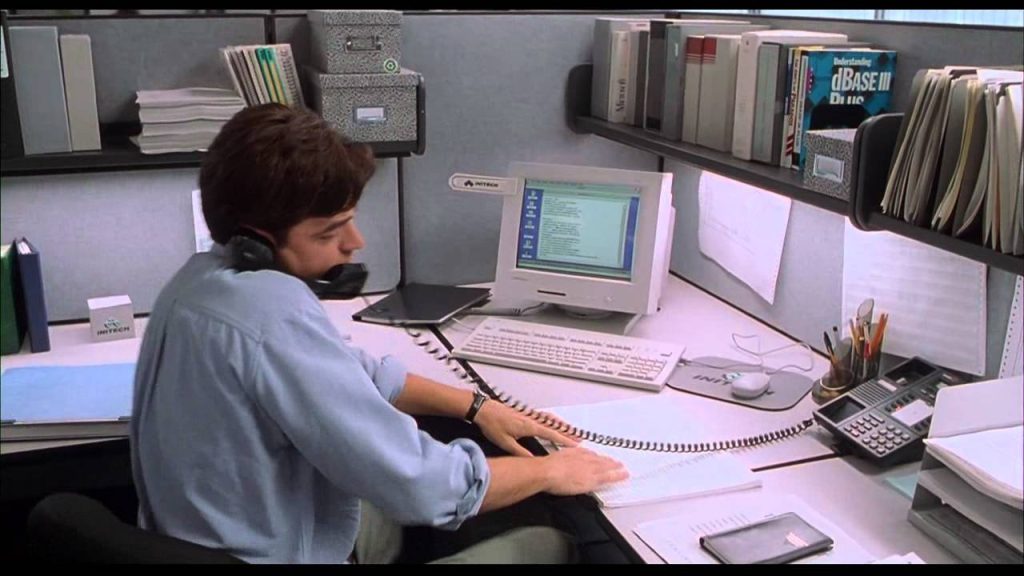
In the realm of cinema, office-life movies offer a unique lens into the everyday drama, humor, and complexities of the workplace. This article explores iconic movies that brilliantly portray the multifaceted nature of office environments
Ergonomics and Entertainment: The Rise of the Standing Desk in ‘The Office’
Standing desks became a symbol of workplace evolution in the renowned TV series “The Office.” This show, set in the mundane yet comical environment of Dunder Mifflin, cleverly integrates modern office trends. For instance, the standing desk craze is subtly presented, reflecting real-world statistics that show a significant increase in their use due to health benefits. “The Office” masterfully blends humor with a genuine portrayal of office dynamics, making it a must-watch.
Its characters, from the bumbling Michael Scott to the pragmatic Jim Halpert, embody diverse workplace personas. The series satirizes everyday office life, highlighting the absurdity and monotony of corporate America. The clever use of a mockumentary format adds to the relatability and authenticity of the show. Each episode serves as a mirror to the real office world, making viewers laugh and reflect simultaneously.
Navigating Corporate Labyrinths in ‘Office Space’
“Office Space,” a cult classic, delves into the soul-sucking nature of corporate life. Released in 1999, it predated the modern startup culture, presenting a stark contrast to today’s flexible work environments. The film’s protagonist, Peter Gibbons, becomes a symbol of every worker’s frustration and desire for change.
Director Mike Judge captures the essence of a monotonous office routine, complete with cubicles that seem to imprison rather than enable employees. The film’s humor is dry yet piercing, targeting the absurdities of office bureaucracy and management. Scenes like the infamous printer destruction resonate with anyone who has felt overwhelmed by the trivialities of office life.
The Cutthroat World of Finance in ‘The Wolf of Wall Street’
“The Wolf of Wall Street” offers a wild ride through the excesses of the financial industry. Martin Scorsese’s direction brings to life the story of Jordan Belfort, a stockbroker who rises to immense wealth and falls due to greed and corruption. The film doesn’t shy away from showcasing the opulence and moral bankruptcy of Wall Street in the 1990s.
Leonardo DiCaprio’s performance is both charismatic and cautionary, embodying the extremes of ambition and recklessness. The movie’s portrayal of the high-stakes financial world is both exhilarating and alarming, serving as a critique of unchecked capitalism. Scenes filled with lavish parties and unethical business practices are juxtaposed with the consequences of such a lifestyle.
Romance and Realism in ‘The Proposal’
“The Proposal” blends romance with the corporate setting, offering a lighter take on office life. Sandra Bullock stars as a high-powered book editor facing deportation to Canada, who convinces her assistant, played by Ryan Reynolds, to marry her temporarily. The film navigates the complexities of workplace relationships with humor and heart. It addresses themes like power dynamics and the struggle for work-life balance, common in many professional settings. The chemistry between Bullock and Reynolds adds a delightful charm, making their characters’ journey from professional to personal both believable and engaging.